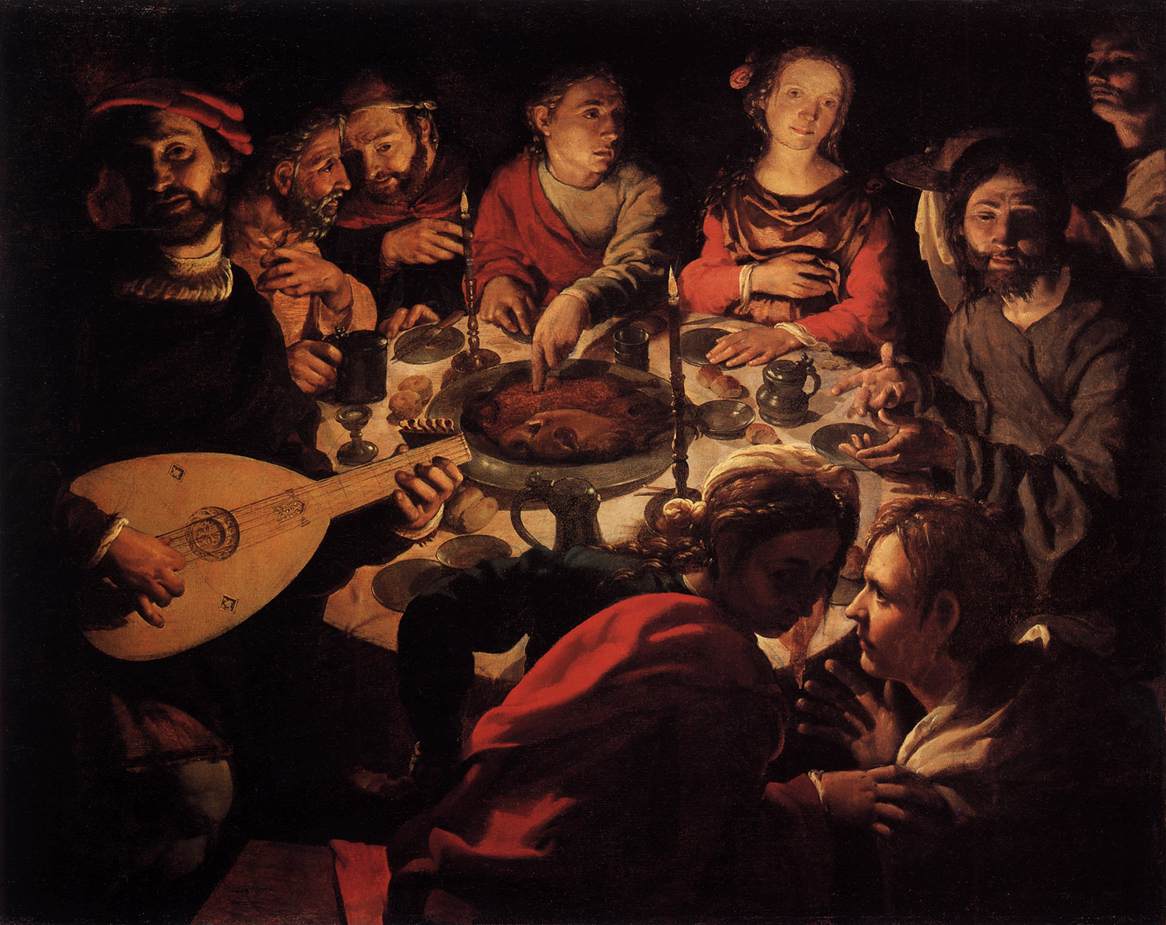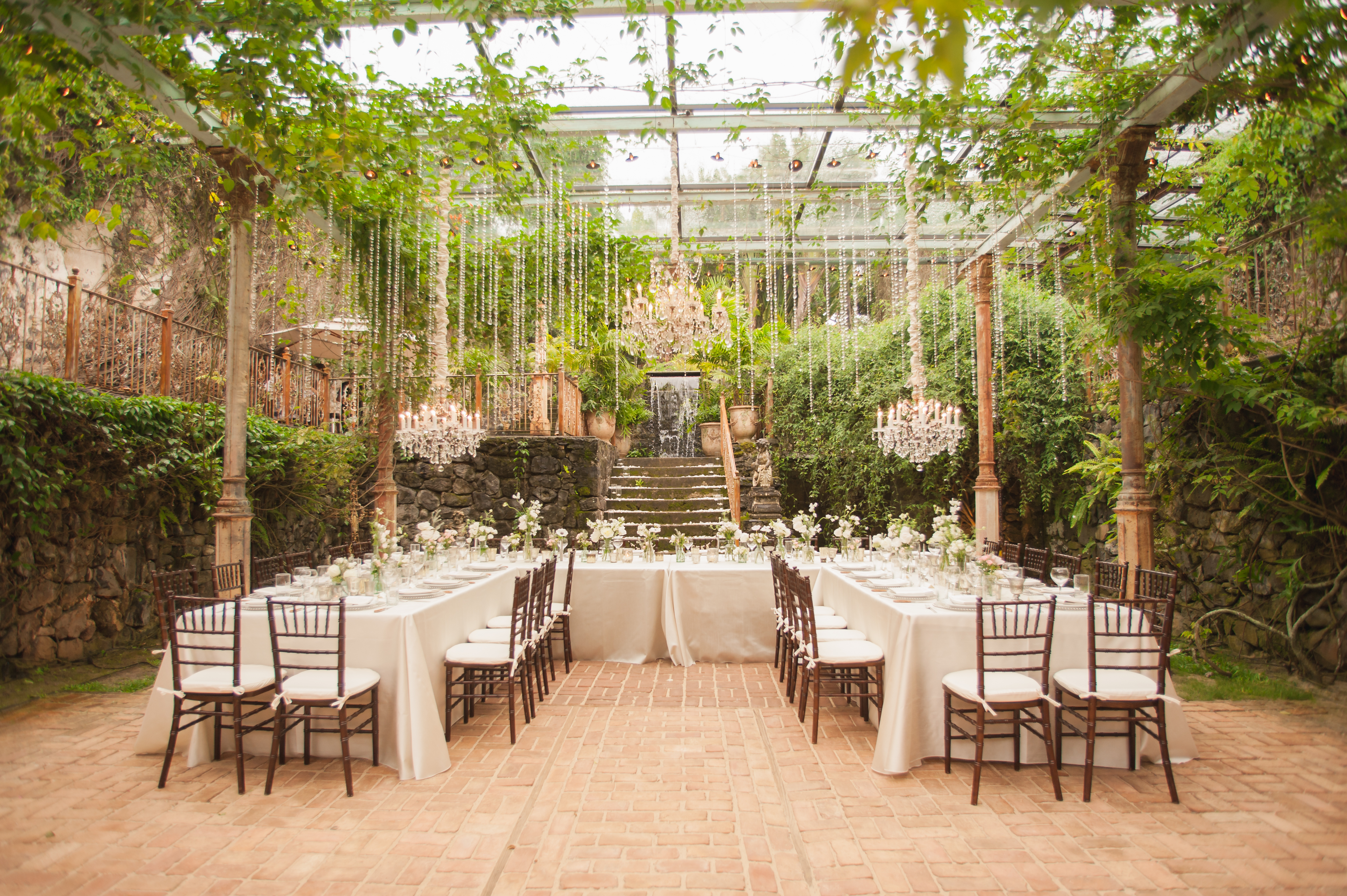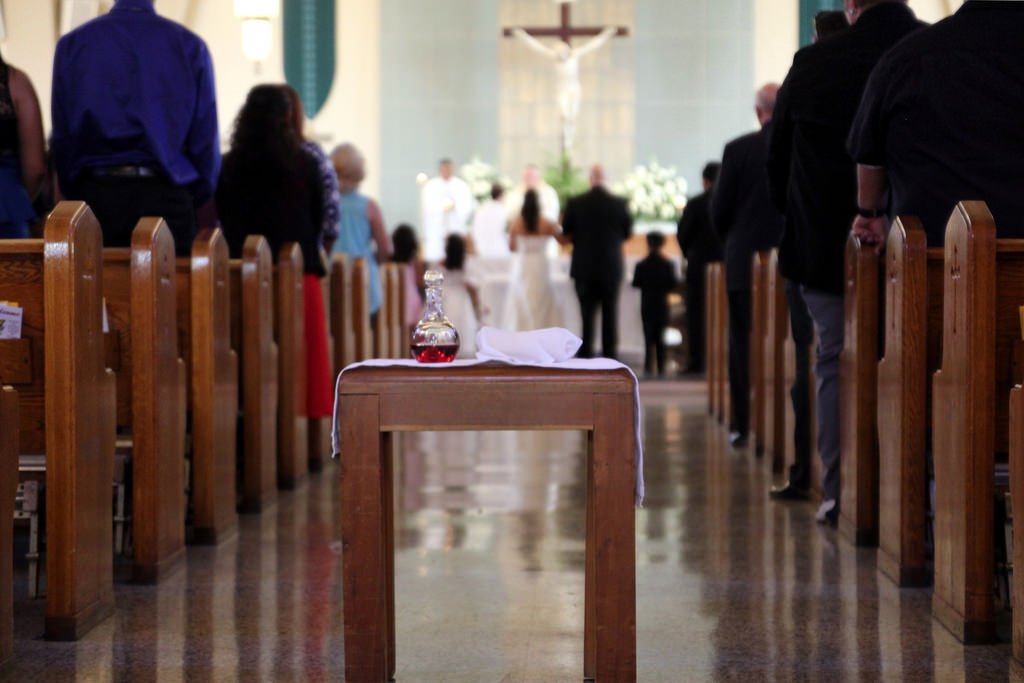The New Wine
Reflections on the readings for the Second Sunday in Ordinary Time
A shorter version of this reflection originally appeared in the Catholic Post.

The first great work of Jesus’ public ministry was the act of the Jewish bridegroom, whose job it is to provide wine for the wedding as Grant Pitre explains in his book, “Jesus the Bridegroom.” Another book that mentions wine is “Praying Scripture for a Change” by Timothy Gray, which describes the process of lectio divina as savoring the good wine God gives us by meditating on Scripture. When we meditate on this Sunday’s readings, we begin to taste God’s desire for mystical union with us.
Jesus, the Bridegroom, offers us the richest, most abundant wine: the divine life of the Trinity. As he gave his life for us on the cross, he said, “It is consummated.” And after he died, a soldier pierced his heart causing blood and water to flow out. This was the “hour” of Christ’s passion that he alludes to in today’s Gospel, in which he is preparing to pour graces into our souls straight from his Sacred Heart. He wants to make us his “delight,” as we hear prophesied in the first reading: “as a bridegroom rejoices in his bride so shall your God rejoice in you.” Mary, who is the perfect “yes” to Christ’s invitation to mystical union, intercedes and enables us to participate in this divine life.
Many see Christianity as simply a moral system, or a means for avoiding hell. But our faith, like the abundance of good new wine, infinitely surpasses these human descriptions. It is, rather, an intimate union: the Blessed Trinity living within us, enlightening our souls with faith, strengthening our wills, and loving others in and through us. It is a life-giving union, since God’s presence overflows in us into the gifts of the Spirit described in the second reading.
This union respects our human freedom. And like a good marriage, everything is shared: we give our human faculties to God, and he gives his life and grace to us. This requires silence, patience, and even suffering. It requires courage and the willingness to grow in virtue and continually start over again. Above all, it requires daily mental prayer, which St. Teresa of Avila defines as “an intimate sharing between friends” and “taking time frequently to be alone with Him who we know loves us.”
Like the saints, we are called to the depths of mystical union with God here and now. To disbelieve this is to deny the core of our faith.

Like all true love, it requires great effort — like those servants in the Gospel dragging heavy stone jars so that Jesus can fill them. But how can our efforts compete with those of Jesus the Bridegroom, who endured torture, humiliation, and death for us? How can we ignore his outstretched arms and open pierced heart? How much effort do we give to prayer, reading Scriptures, and meditating on them each day? How often do we share our thoughts, feelings, and desires with Him and open ourselves to receive his grace and savor the rich wine he pours out for our souls?
This is the intimate sharing that St. Teresa speaks of, and it is practice for heaven. Begin to taste this good wine now, and you will drink it forever in the eternal wedding feast.
Each vocation finds its origin and fulfillment in this wedding feast. Each is a participation in Jesus’ thirst for souls and his passionate desire to fill us with divine life. Married couples are walking signs of this union. But they also point beyond themselves, to a reality both deeper and more enduring. Before any Christian husband proposed to his wife, Jesus proposed to her first and united himself to her in the sacrament of baptism. There is a thirst in the spouse’s soul that the other can’t satisfy. If they try to, the marriage will become something God never intended it. Instead, union with Christ and an active prayer life frees married people to love each other as finite human beings, rather than seeking divine life in creatures. When Christ the Bridegroom is present at your wedding and throughout your marriage, he provides the grace you need to love, to be patient and chaste, and to forgive one another.

Consecrated men and women are living the future wedding feast in the here and now, since they are united exclusively to Christ the Bridegroom. They take the baptismal vows which bound each of us to Christ and extend them to their farthest consequence in this life. Contemplatives in particular dedicate themselves to a life of prayer, drinking in the new wine of contemplative prayer and proving to the rest of us that it is better than anything the world has to offer.
St. John Paul II taught that “The priest is called to be the living image of Jesus Christ, the spouse of the Church.” This is why priestly celibacy is the norm: “The Church, as the spouse of Jesus Christ, wishes to be loved by the priest in the total and exclusive manner in which Jesus Christ her head and spouse loved her. Priestly celibacy, then, is the gift of self in and with Christ to his Church and expresses the priest’s service to the Church in and with the Lord” (Pastores Dabo Vobis) And, of course, this self-giving love finds its consummation in the celebration of the Eucharist, in which the priest offers himself in union with Christ the Bridegroom in order to provide for the Church.
Whatever your vocation, it will grow out of this union with Christ and the habit of prayer that, like a good marriage, perseveres for better or worse. If your future spouse is a person on this earth, Christ will unveil that person to you. He will provide you with what you need to live up to the vocation of marriage and family. If your spouse is meant to be Jesus Christ himself, he will propose to you in prayer and draw you to him through the circumstances of life and the attraction of a certain religious order and its particular charisms and spirit. And if, as a man, Jesus wants you to stand in his place as the Bridegroom and provide for his bride the Church, this too will be revealed as you spend time in the presence of the Eucharist.
No matter what the circumstances of your life, be confident that Christ the Bridegroom saw your face as he gave up his breath and blood on the cross. Trust that he will provide for you, and ask Mary for the grace to respond to his love and thirst for souls.

